Your search “Keep%20the%20Death%20Penalty%20Abolished%20fin%20the%20Philippfines%20%20%20%20%20%20%20%20%20%20/page/cdm16501.contentdm.oclc.org/cdm/ref/collection/criminal/id/154 ”

Article(s)
China rejects all UN recommendations on death penalty use
By Aurélie Plaçais, on 24 March 2014
“China’s position is to retain the death penalty, but strictly and prudently limit its application according to law,” said the world’s top executioner after it rejected all 20 UPR recommendations to curb capital punishment.
2014
China

Article(s)
Iranian death sentence for Facebook postings violates international law
By World Coalition Against the Death Penalty, on 28 November 2014
Statement of the World Coalition Against the Death Penalty on Soheil Arabi’s Death Sentence in Iran: Exercising freedom of expression is not a crime.
2014
Iran (Islamic Republic of)
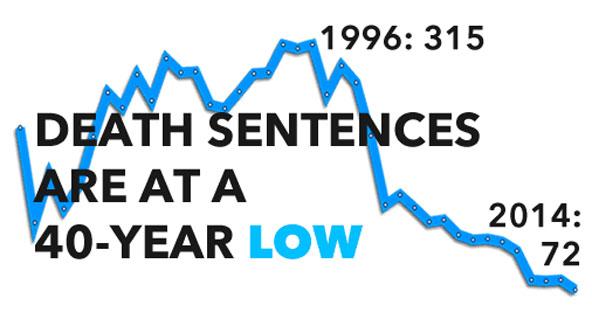
Article(s)
Fewest death sentences in 40 years in the US
By Death Penalty Information Center, on 12 January 2015
The number of executions in the United States was at its lowest in 20 years and seven death row prisoners were exonerated in 2014.
2015
Intellectual Disability
Mental Illness
United States

Article(s)
Executions in Jordan and Pakistan show need to go beyond moratorium
By Thomas Hubert, on 16 January 2015
The World Coalition and its members have criticised decisions by the governments of Jordan and Pakistan to reverse their policy of suspending executions despite a historic vote in favour of a moratorium on the use of the death penalty at the UN General Assembly.
2015
Jordan
Moratorium
Pakistan
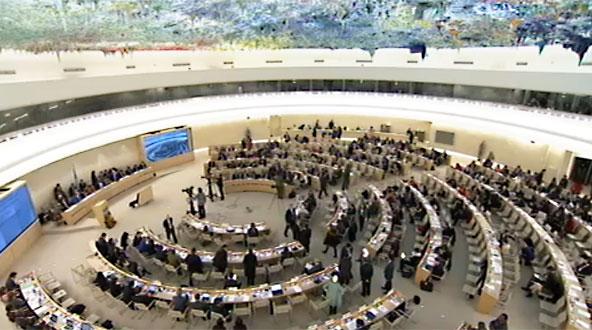
Article(s)
Top UN representatives take stance on death penalty at Human Rights Council
By World Coalition Against the Death Penalty, on 14 March 2014
From UN Secretary General Ban Ki-moon to abolitionist and retentionist government ministers and World Coalition members, participants to a recent discussion on the death penalty placed the issue high on the international agenda.
2014
Afghanistan
Benin
Brazil
Cruel, Inhuman and Degrading Treatment and Punishment
Iran (Islamic Republic of)
Mongolia
Morocco
Myanmar
Namibia
Pakistan
Saudi Arabia
Sierra Leone
Singapore
Sudan
United States
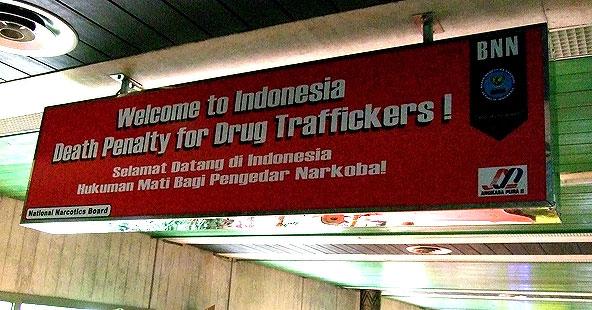
Article(s)
Indonesia: execution for drug crimes is no solution
By World Coalition Against the Death Penalty, on 26 January 2015
In an open letter, the World Coalition and its members, including KONTRAS and Amnesty International, condemn the Indonesian government’s politicizing of the death penalty to show its commitment to eradicating drug-related crimes. Recent resumptions of executions show one thing, they are carried out for political reasons only: in Pakistan to show that it is tough on terrorism, Jordan that it tough on crime and Indonesia that it is tough on drugs. Instead, those states should abolish the death penalty to show their commitment to upholding human rights. The next World Day against the Death Penalty will be dedicated to the issue of capital drug crimes.
2015
Drug Offenses
Indonesia
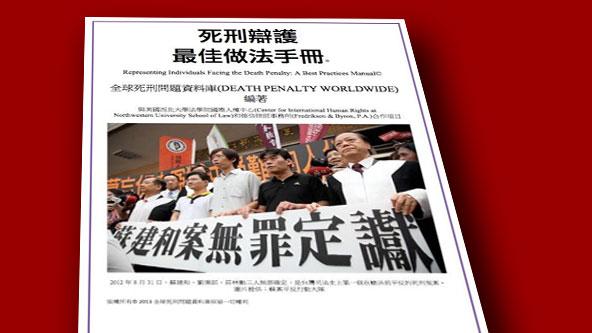
Article(s)
Lawyers’ manual published in traditional Chinese
By Taiwan Alliance to End the Death Penalty, on 30 November 2013
On the occasion of Cities for Life Day on November 30, the Taiwan Alliance to End the Death Penalty (TAEDP) and the World Coalition Against the Death Penalty are proud to announce the online publication of the Chinese version of Representing Individuals Facing the Death Penalty: A Best Practices Manual. This publication is intended for lawyers who defend people facing the death penalty around the world.
2013
China
Legal Representation
Taiwan
Taiwan
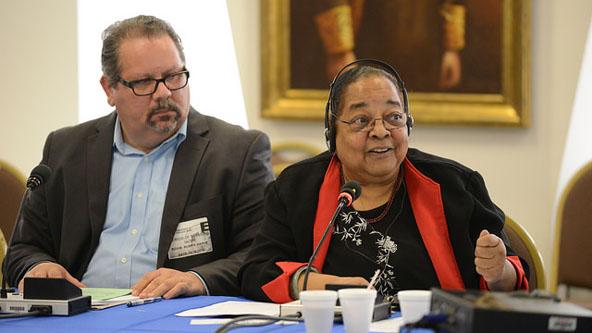
Article(s)
Greater Caribbean for Life addresses Inter-American Commission on death penalty in their region
on 19 March 2015
On Monday, 16 March 2015, the Greater Caribbean for Life (GCL) addressed the Inter-American Commission on Human Rights (IACHR) on issues relating to the death penalty in the Greater Caribbean, during a dedicated thematic hearing held at the Organisation of American States (OAS) headquarters in Washington, D.C., USA.
2015
Antigua and Barbuda
Argentina
Bahamas
Barbados
Belize
Bolivia (Plurinational State of)
Brazil
Canada
Chile
Colombia
Costa Rica
Cuba
Dominica
Dominican Republic
Ecuador
El Salvador
Grenada
Guyana
Haiti
Honduras
Jamaica
Mexico
Nicaragua
Panama
Paraguay
Peru
Saint Kitts and Nevis
Saint Lucia
Saint Vincent and the Grenadines
Suriname
Trinidad and Tobago
United States
Uruguay
Venezuela (Bolivarian Republic of)
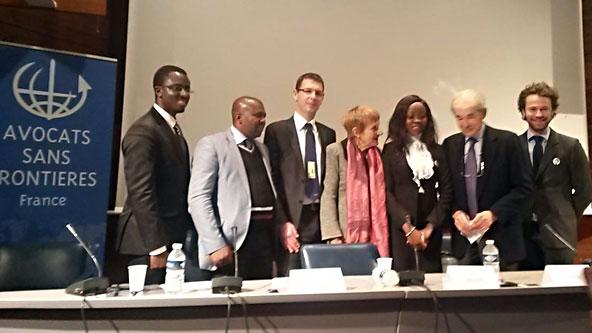
Article(s)
The strategic path to abolition in Nigeria
By Emile Carreau, on 2 December 2014
Two World Coalition members, Avocats Sans Frontières France and the Paris Bar Association, held a conference on the death penalty in Nigeria in Paris on the 27th of November.
2014
Nigeria
Nigeria

Article(s)
Abolition of the death penalty in Nauru
By Marion Gauer, on 3 June 2016
Nauru recently ended its de facto moratorium by abolishing the death penalty in law.
2016
Nauru
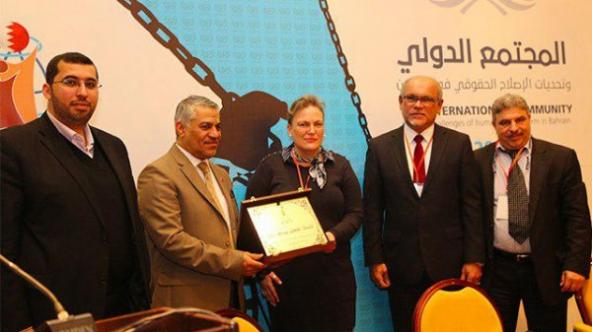
Article(s)
The 6th International Conference on Human Rights issues a warning on the alarming situation in Bahrain
By Emmanuel Trépied and Coalition marocaine contre la peine de mort, on 10 March 2017
The World Coalition was invited to take part in the 6th international Conference on Human Rights, on February 22nd, 2017 in Beirut. addressing the very worrying situation in Bahrain, the event resulted in a series of calls and recommendations.
2017
Bahrain
Cruel, Inhuman and Degrading Treatment and Punishment
Fair Trial
Moratorium
Terrorism
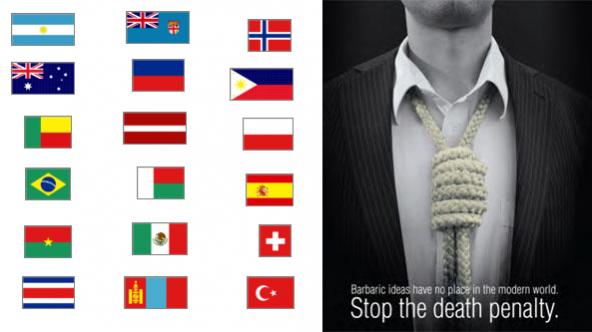
Article(s)
International support for abolition is continuing to grow – foreign ministers
By World Coalition Against the Death Penalty, on 9 October 2015
The Declaration signed by 18 Foreign Ministers from different world regions, including several that are still on a path towards abolition of the death penalty, brings one common message: International support for abolition is continuing to grow, driven by an increasing awareness of the death penalty’s inherent risks and shortcomings.
2015
Argentina
Australia
Benin
Brazil
Burkina Faso
Costa Rica
Fiji
Haiti
Latvia
Madagascar
Mexico
Mongolia
Norway
Philippines
Poland
Spain
Switzerland
Turkey

Article(s)
LEDAP condemns the killing of three death row prisoners in Nigeria
By Chino Obiagwu - LEDAP National Coordinator, on 28 December 2016
Legal Defence and Assistance Project (LEDAP) condemns the killing on December 23 2016 of three death row prisoners in Benin City prison on death warrants signed by the Edo State Governor, Mr. Godwin Obaseki. Those executed were Ogbomoro Omoregie, Apostle Igene and Mark Omosowhota. They were all convicted and sentenced to death nearly 20 years ago by military tribunals under the Robbery and Firearms (Special Provisions) Decree as amended.
2016
Cruel, Inhuman and Degrading Treatment and Punishment
Nigeria

Article(s)
Irreversible abolition of the death penalty in Togo and the Dominican Republic
By Guillaume Colin and Aurélie Plaçais, on 27 September 2016
On 14 September 2016, Togo acceded to the Second Optional Protocol to the International Covenant on Civil and Political Rights on the abolition of the death penalty, joined on 21 September 2016 by the Dominican Republic. These accessions make abolition of the death penalty in Togo and the Dominican Republic irreversible.
2016
Dominican Republic
Togo
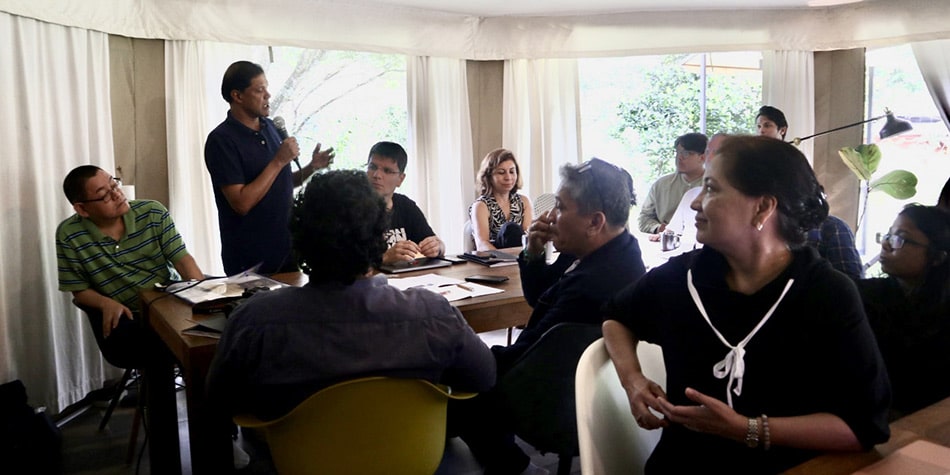
Article(s)
Debunking narratives for a return of the death penalty
By Venus Aves, on 13 November 2023
Time and time again, abolitionists have been making the case against the death penalty, highlighting how inhumane, inefficient and unfair it is.
2023
Drug Offenses
Maldives
Philippines
Public Opinion
Sri Lanka
Trend Towards Abolition
Turkey

Article(s)
Terrorism is no excuse for unfair trials in Iraq
By Elisa Belotti, on 25 November 2015
Earlier in November, the UN Human Rights Committee released its concluding observations on Iraq’s implementation of the International Covenant on Civil and Political Rights. The Committee and civil society’s representatives specifically dwelled on Iraq’s application of the death penalty.
2015
Fair Trial
Iraq
Iraq
Terrorism
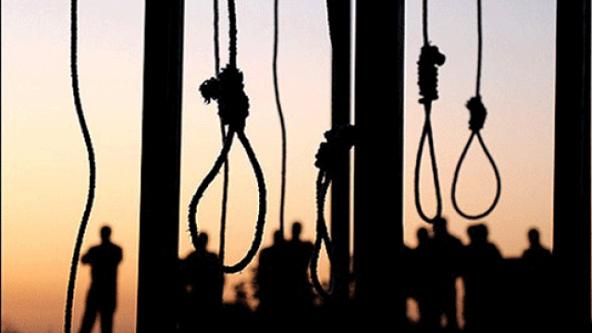
Article(s)
Joint statement from 48 coalitions, networks and human rights organizations from 12 Arab countries
By The Arab Coalition Against the Death Penalty, on 6 January 2016
The statement strongly condemns the execution of Nimr Baqir al-Nimr in Saudi Arabia and renewed its demand for Saudi Arabia to support the United Nations resolution on a global moratorium on the death penalty and to abolish the death penalty in national legislation.
2016
Saudi Arabia
Document(s)
Practice guide for defense counsel representing individuals facing the death penalty in Uganda
By Penal Reform International, on 1 January 2019
2019
Working with...
More details See the document
This Practice guide offers guidance to defense counsel in Uganda for the accused person facing a criminal trial of a capital offence involving a death penalty. The best practices are intended to ensure effective legal representation in order to mitigate the potential of imposition of the death penalty. The best practices detailed in the Practice guide intend to enhance the performance of criminal defense counsel in all stages of the criminal trial proceeding to mitigate the adverse effect of an erroneous conviction and sentencing of the accused person to death.The Practice guide was developed in recognition of the unique nature and effect of the death penalty compared to other criminal penalties, and therefore defense counsel in a capital case should take extraordinary efforts on behalf of the accused to review and ensure compliance with these best practices throughout the proceedings.
- Document type Working with...
- Themes list Legal Representation,
Document(s)
Executing the Mentally Ill: When Is someone Sane Enough to Die?
By Michael Mello / Criminal Justice, on 1 January 2007
2007
Article
United States
More details See the document
Mental illness is a phenomenon that knifes across the entire corpus of our criminal justice system. From interrogations and waivers of Miranda rights, to consent to searches and seizures, to plea negotiations and the capacity to stand trial, to calculating sentences and participating in appellate and postconviction proceedings, mental illness warps the machinery of our criminal law and challenges its most cherished assumptions about free will, decisional competence, and culpability. This is so regardless of whether or not life hangs in the balance. But when the stakes are life and death, the structural distortions caused by mental illness become magnified, and the contradictions can rise to constitutional magnitude.
- Document type Article
- Countries list United States
- Themes list Mental Illness,
Document(s)
Deeply Rooted: How Racial History Informs Oklahoma’s Death Penalty
By Death Penalty Information Center, on 14 October 2022
2022
Article
United States
More details See the document
These individual cases illustrate issues found in systemic reviews of the state’s death penalty system. In 2017, a bipartisan commission that included former prosecutors, defense lawyers, judges, citizens, crime victim advocates, and law professors found that the state’s capital punishment system created “unacceptable risks of inconsistent, discriminatory, and inhumane application of the death penalty.” In an extensively researched report, the commission recommended a moratorium on executions until reforms were made. Five years later, Oklahoma has enacted “virtually none” of the suggested reforms.
- Document type Article
- Countries list United States
Document(s)
Facts and Figures 2011
By World Coalition against the death penalty , on 10 October 2011
2011
Campaigning
Trend Towards Abolition
frMore details Download [ pdf - 100 Ko ]
Facts and Figures 2011
- Document type Campaigning
- Themes list Trend Towards Abolition
- Available languages Faits et chiffres 2011
Document(s)
Facts and Figures 2013
on 10 October 2013
2013
Campaigning
Trend Towards Abolition
aresMore details Download [ pdf - 115 Ko ]
Facts and Figures world day against the death penalty 2013
- Document type Campaigning
- Themes list Trend Towards Abolition
- Available languages Faits et chiffres 2013PENA DE MUERTE HECHOS Y DATOS
Document(s)
Facts and Figures 2010
By World Day against the death penalty , on 10 October 2010
2010
Campaigning
Trend Towards Abolition
frMore details Download [ pdf - 81 Ko ]
Facts and Figures 2010
- Document type Campaigning
- Themes list Trend Towards Abolition
- Available languages Faits et chiffres 2010
Document(s)
World Coalition Strategic Plan 2023-2027
By World Coalition Against the Death Penalty, on 22 August 2023
2023
World Coalition
Trend Towards Abolition
frMore details Download [ pdf - 455 Ko ]
- Document type World Coalition
- Themes list Trend Towards Abolition
- Available languages Plan Stratégique 2023-2027 de la Coalition Mondiale
Document(s)
Facts and Figures 2007
By World Coaliton against the death penalty , on 10 October 2009
2009
Campaigning
Trend Towards Abolition
frMore details Download [ pdf - 24 Ko ]
Facts and Figures 2007
- Document type Campaigning
- Themes list Trend Towards Abolition
- Available languages Faits et chiffres 2007

Article(s)
Indonesian executions on the rise as election looms
By Emile Carreau, on 10 December 2013
Executions have multiplied in Indonesia throughout 2013. World Coalition local member organization KontraS sees political motivations behind the end of a four-year moratorium.
2013
Indonesia
Indonesia
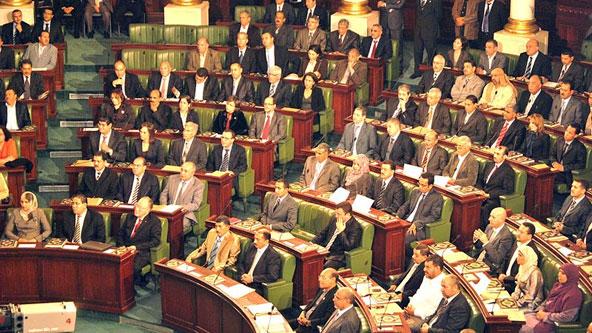
Article(s)
Tunisian Constitution enshrines right to life but upholds death penalty
By Delphine Judith, on 28 January 2014
After weeks of debates, Tunisia has adopted a new Constitution. As expected by local abolitionists, the National Constituent Assembly (NCA) passed a text allowing capital punishment on 26 January 2014.
2014
Moratorium
Tunisia
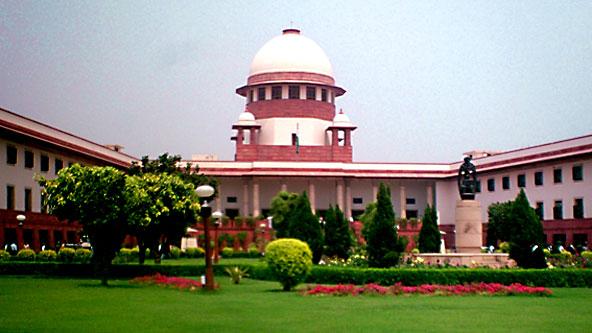
Article(s)
Indian ruling highlights importance of next World Day
By Emile Carreau, on 3 February 2014
On 21 January, India’s Supreme Court formally banned the execution of mentally ill prisoners and in doing so highlighted why this year’s World Day against the Death Penalty, which is dedicated to issues of mental health, is so important.
2014
India
Intellectual Disability
Mental Illness
Article(s)
Training consultant
By World Coalition, on 21 January 2016
The World Coalition calls for applications for a consultant in charge of planning a training session in Sub-Saharan Africa.
2016
Article(s)
Program Officer
By PGA, on 22 February 2016
PGA is recruiting a Programme Officer for its Hague office.
2016
Article(s)
Small Grant for Activities in the Caribbean
By World Coalition Against the Death Penalty, on 29 August 2019
Call for action on the abolition of the death penalty in Barbados and the Eastern Caribbean States launched by the Greater Caribbean for Life and the World Coalition Against the Death Penalty
2019
Barbados
Article(s)
Évaluation finale externe d’un projet de 36 mois sur l’abolition de la peine de mort en Afrique
By FIACAT, on 13 March 2018
1. OrganisationLa Fédération internationale de l’Action des chrétiens pour l’abolition de la torture, la FIACAT, est une organisation internationale non gouvernementale de défense des droits de l’homme, créée en 1987, qui lutte pour l’abolition de la torture et de la peine de mort. La Fédération regroupe une trentaine d’associations nationales, les ACAT, présentes sur quatre […]
2018
Article(s)
Website Redesign and Development
By World Coalition Against the Death Penalty, on 15 January 2020
The World Coalition Against the Death Penalty’s office in Paris area, France, is currently calling for web development and makeover tenders.
The objective is to award a contract to develop and maintain the World Coalition Against the Death Penalty’s new website, based on technical specifications.
2020
Article(s)
Call for tenders for printing, design and layout services
By Carlos Valera, on 7 July 2020
The World Coalition requires contracts for printing, design and layout services, visibility items and reprography for any publications that may be required, in addition to materials that may be required with these features.
2020
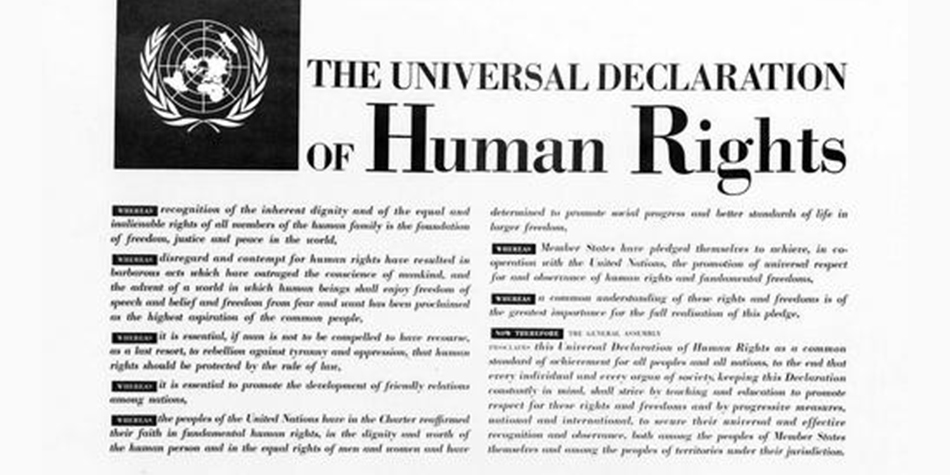
Article(s)
Statement on the occasion of the International Human Rights Day
By World Coalition Against the Death Penalty, on 10 December 2020
Humanity and the global human rights movement, including the World Coalition Against the Death Penalty, are celebrating the 72nd anniversary of the adoption of the Universal Declaration of Human Rights on 10 December 1948. This day has been commemorated by the United Nations as International Human Rights Day.
2020
Moratorium
cropped-favicon.png
on 26 April 2021
https://worldcoalition.org/wp-content/uploads/2021/04/cropped-favicon.png
2021
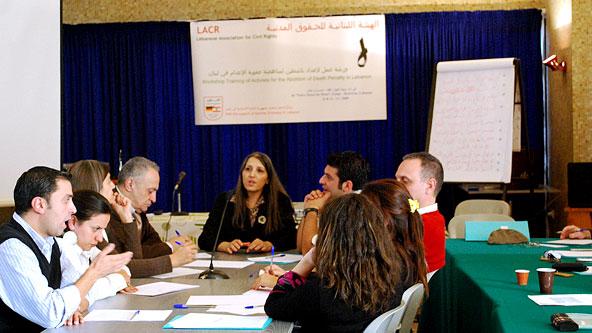
Article(s)
“Catastrophic” conditions on Lebanon’s death row
By Delphine Judith, on 31 May 2013
Ogarit Younan is a co-founder of the Lebanese Association for Civil Rights, which has just joined the World Coalition. She takes stock on the death penalty and abolitionist progress in Lebanon.
2013
Death Row Conditions
Lebanon
Article(s)
Every voice counts to oppose the death penalty in California
on 24 June 2009
Abolitionists are given a unique opportunity to voice their position as Californian authorities seek comments from the public on the review of the lethal injection process.
2009
Cruel, Inhuman and Degrading Treatment and Punishment
United States
Article(s)
10.10.10 World Day Against the Death Penalty – USA special
on 6 August 2010
On 10 October 2010, the World Day Against the Death Penalty will focus on the USA. There are two months left to prepare and promote the events planned around the world on the big day.
2010
Cruel, Inhuman and Degrading Treatment and Punishment
United States
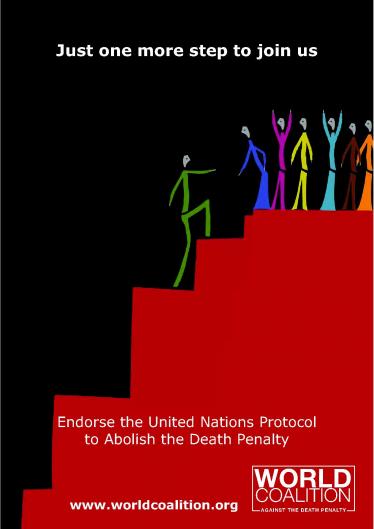
Just One More Step: Ratifying International and Regional Protocols
on 28 March 2022
As of 10 June 2024, 91 of the 173 States parties to the ICCPR have ratified or acceded to its Second Optional Protocol aiming at the abolition of the death penalty, most recently Côte d’Ivoire (3 May 2024), Kazakhstan (24 March 2022), Armenia (18 March 2021), Angola (2 October 2019) and the State of […]
2022
Central African Republic
Chad
Congo
Fiji
Ghana
Marshall Islands
Samoa
Sierra Leone
Suriname
Zambia
Article(s)
Live from death row
on 25 February 2010
The 180 members of the public who had gathered to view the film Manners of dying had an opportunity to witness a discussion between Mumia Abu-Jamal and his lawyer Robert Bryan.
2010
Switzerland
United States
Article(s)
8 Demands for Beijing
on 21 June 2007
By welcoming the Olympics in 2008, China committed itself to improving its human rights situation. Anxious to remind Chinese authorities of their commitments, nine French associations, five of which are members of the World Coalition, created the China 2008 Olympic Games Collective.
2007
China

Article(s)
Call for tenders for the contracting of travel management services
By World Coalition Against the Death Penalty, on 15 June 2021
The World Coalition requires travel management services, on a non-exclusive basis, for World Coalition staff, members and partners.
2021
Article(s)
Interview: Pakistan on its way to a moratorium?
on 25 July 2008
Pakistan’s new government has called on all death sentences in the country to be commuted to life imprisonment. Pakistani lawyer and human rights defender Kamran Arif believes a moratorium is at hand.
2008
Clemency
Moratorium
Pakistan
Pakistan
Article(s)
Iranian World Coalition member receives Martin Ennals award
on 23 May 2009
A group of prestigious human rights organisations have chosen to honour Emad Baghi, the founder of the Association for the Right to Live.
2009
Iran (Islamic Republic of)
Article(s)
African Great Lakes Coalition gets stronger
on 6 November 2009
The group, which brings together more than 30 member organisations from four countries, established itself as a formal body and launched its website on World Day Against the Death Penalty.
2009
Burundi
Democratic Republic of the Congo
Juveniles
Rwanda
Uganda
Document(s)
Moving away from the death penalty
By Office of the High Commissioner for Human Rights (OHCHR) , on 1 January 2015
2015
International law - United Nations
More details See the document
The present publication provides an extensive review of global trends in death penalty matters, a summary of the applicable international legal standards, and the current status of legislative reform related to the death penalty in South-East Asia. As a product of the OHCHR Regional Office for South-East Asia, this publication is intended to be a resource for further discussions in the region toward the abolition of the death penalty.
- Document type International law - United Nations
- Themes list Trend Towards Abolition,
Document(s)
Race Discrimination and the Legitimacy of Capital Punishment: Reflections on the Interaction of Fact and Perception
By George Woodworth / David C. Baldus / DePaul Law Review, on 1 January 2004
2004
Article
United States
More details See the document
The authors analyze data concerning race discrimination in capital sentencing and data regarding how the public perceives this issue. They conclude that race discrimination is not an inevitable feature of all death penalty systems. Before Furman v. Georgia was decided in 1972, widespread discrimination against black defendants marred the practice of capital punishment in America. According to studies cited by the authors, race-of-defendant discrimination has lessened since Furman. However, race-of-victim discrimination remains a significant factor in sentencing; defendants with white victims are at a significantly higher risk of being sentenced to death and executed than are defendants whose victims are black, Asian, or Hispanic. From 1976 to 2002, the proportion of white-victim cases among all murder and non-negligent manslaughter cases has ranged between 51% and 56%. However, 81% of executed defendants had white victims. Polling data indicate that the general public perceives only one form of race discrimination in the use of the death penalty – race-of-defendant discrimination – and that the public and elected officials may see racial discrimination as inevitable in the criminal justice system. Race of victim discrimination is a pervasive problem in the death penalty system. However, race discrimination is not inevitable. If serious controls were enacted to address this problem (such as those imposed in a few states) a fairer system could result.
- Document type Article
- Countries list United States
- Themes list Discrimination,
Document(s)
Death Penalty in Pakistan
By Justice Project Pakistan, on 10 October 2022
2022
NGO report
Pakistan
More details See the document
The implementation of capital punishment has seen substantial shifts over the course of the past decade. During the period from the end of a moratorium on executions in December 2014 to August 2019, an estimated 1,800 death sentences were imposed across the entire court system and 520 people were executed. Various amendments to Pakistan’s criminal law over the past several decades have resulted in a list of 33 offenses, most of which are far removed from the definition of the “most serious crimes” under international law. A full list of offences is attached at the end of the report.
- Document type NGO report
- Countries list Pakistan
Document(s)
Isolation and desolation conditions of detention of people sentenced to death Malaysia
By Carole Berrih, Ngeow Chow Ying, ECPM, ADPAN, on 27 May 2021
2021
NGO report
Death Row Conditions
Malaysia
frMore details See the document
Isolation and Desolation – Conditions of Detention of People Sentenced to Death in Malaysia is the first ever fact-finding mission report on the conditions of detention of death row prisoners in Malaysia.
It examines the use of death penalty in Malaysia as well as the actual situation of people on death row.
This report is not meant to point fingers but rather to put the facts on the table in a transparent manner and work from there. It is mainly an advocacy tool for all abolitionist stakeholders, from civil society actors to the parliamentarians who will keep fighting for the abolition of the death penalty.
- Document type NGO report
- Countries list Malaysia
- Themes list Death Row Conditions
- Available languages Isolement et désespoir conditions de détention des condamnés à mort Malaisie
Document(s)
Public Opinion on the Death Penalty in China: Results from a General Population Survey Conducted in Three Provinces in 2007/08
By Shenghui Qi / Dietrich Oberwittler / Max Planck Institute for Foreign and International Criminal Law, on 1 January 2008
2008
Article
China
More details See the document
The present project is concerned with the significant role that public opinion plays in the debate surrounding the death penalty and criminal policy in the People’s Republic of China, including possible public reaction to any planned abolishment of the death penalty. How is public opinion on the death penalty exhibited in China? What influence does public opinion on the death penalty have on legislative and judicial practice in China? The principal goal of the project is to analyze the links that exist between public opinion, criminal policy, legislation and legal practice, and to initiate attitudinal changes amongst political and legal actors as well as the public at large. A further objective is to guide Chinese criminal law reform, particularly with regard to a possible reduction in the number of capital offences, against the background of the ratification of the International Covenant on Civil and Political Rights
- Document type Article
- Countries list China
- Themes list Public opinion,
Document(s)
Living with a Death Sentence in Kenya: Prisoners’ Experiences of Crime, Punishment and Death Row
By Carolyn Hoyle and Lucrezia Rizzelli, on 24 January 2023
2023
Book
Kenya
More details See the document
The Death Penalty Project’s latest report provides a comprehensive analysis of the lives of prisoners on death row in Kenya. It focuses on prisoners’ socio-economic backgrounds and profiles, their pathways to, and motivation for, offending, as well as their experiences of the criminal justice process and of imprisonment. It complements our previous research, a two-part study of attitudes towards the death penalty in Kenya, The Death Penalty in Kenya: A Punishment that has Died Out in Practice.
While 120 countries around the world have now abolished the death penalty, including 25 in Africa, Kenya is one of 22 African nations that continues to retain the death penalty in law, albeit it has not carried out any executions for more than three decades. As such, Kenya is classified as ‘abolitionist de facto’, the United Nations term for a country that has not carried out an execution for at least 10 years. Yet, while state-sanctioned executions no longer occur, hundreds of people are currently living under sentence of death and others are convicted and sentenced to death each year. As long as the death penalty is retained in law, there remains a risk that executions might resume if there is political change. Moreover, the plight and turmoil of those languishing on death row – consistently the poorest and most vulnerable – cannot be ignored. They are disproportionately sentenced to death and suffer the harshest punishments and treatment.
- Document type Book
- Countries list Kenya
Document(s)
Execution in Saudi Arabia 2023: Ongoing Bloodshed with Unusual Sentences
By The European Saudi Organization for Human Rights (ESOHR), on 23 January 2024
2024
NGO report
Saudi Arabia
More details See the document
Published on 22 January، 2024.
The European Saudi Organization for Human Rights views 2023 as a year that demonstrated Saudi Arabia’s inconsistency in using the death penalty. Besides the unexplained shift in the types of executed sentences, the implementation of death sentences for drug-related charges, and the disregard for international legal opinions, the high numbers indicate Saudi Arabia’s determination to use the death penalty without restraint.
In Saudi Arabia in 2023, 172 executions were carried out according to data from the Ministry of Interior published by the official news agency. The number of executions increased by 15% compared to the figure announced by the Ministry of Interior in 2022, where 147 sentences were reported, despite the mass execution of 81 individuals in 2022.
- Document type NGO report
- Countries list Saudi Arabia
Document(s)
Capital Punishment in Context
By Death Penalty Information Center, on 8 September 2020
2020
Campaigning
More details See the document
Capital Punishment in Context contains several cases of individuals who were sentenced to death in the United States. Each case presents a narrative account of the individual’s crime, trial and punishment, along with guidelines for analysis, discussion and further research on issues raised by the case. The narratives are supplemented by resources such as original police reports from the homicide investigation and transcripts of testimony from witnesses. After reading the case, you can further explore issues by following a series of links to new information. Each case, along with the related materials, delineates a path through the criminal justice system. At every stage of the process, questions are raised about how the system works. These questions can lead to an analysis of key topics, such as the quality of legal representation for criminal defendants, the risk of wrongful convictions, the role of capital jurors, judicial independence, and the role that race may play in the criminal justice system.
- Document type Campaigning
- Themes list Networks,
Document(s)
Facts and Figures 2009
By World Coalition against the death penalty , on 10 October 2009
2009
Campaigning
Trend Towards Abolition
frMore details Download [ pdf - 95 Ko ]
Facts and Figures 2009
- Document type Campaigning
- Themes list Trend Towards Abolition
- Available languages Faits et chiffres 2009
Document(s)
Justice Project Pakistan, Pakistanis Imprisoned Abroad Database
By Justice Project Pakistan (JPP), on 7 February 2024
2024
NGO report
Pakistan
More details See the document
Pakistan is counted among the countries that rely heavily on foreign remittances for economic stability and foreign reserves. However, despite its dependence on foreign remittances from migrant workers, Pakistan has done little to protect its vulnerable citizens from landing in foreign jails. As a result, Pakistan has seen a significant increase in the number of prisoners and executions abroad. Inadequate oversight and the lack of proper enforcement of existing protections is a literal death sentence for scores of Pakistanis who simply seek a better life and improved prospects for loved ones by working abroad.
- Document type NGO report
- Countries list Pakistan
Document(s)
Little Furmans Everywhere: State Court Intervention and the Decline of the American Death Penalty
By Carol S. Steiker & Jordan M. Steiker, on 1 September 2022
2022
Academic report
Trend Towards Abolition
United States
More details See the document
This article retraces the evolution and recent decline of death peanlty in the United States, notablt through state court interventions. These dynamics between judicial and political action illuminate the importance of state court intervention in the story of the American death penalty’s precipitous decline, which has tended to foreground other institutional actors and to neglect the complex interactions among branches of government. State judicial rulings, though often highly technical and, therefore, less visible and accessible to the public, have been a pervasive and powerful force in the two-decade-long diminution of the practice of capital punishment across the United States.
- Document type Academic report
- Countries list United States
- Themes list Trend Towards Abolition
Document(s)
THE RACIAL GEOGRAPHY OF THE FEDERAL DEATH PENALTY
By Robert J. Smith / Ben Cohen / Washington Law Review, on 1 January 2010
2010
Article
United States
More details See the document
Scholars have devoted substantial attention to both the overrepresentation of black defendants on federal death row and the disproportionate number of federal defendants charged capitally for the murder of white victims. This attention has not explained (much less resolved) these disquieting racial disparities. Little research has addressed the unusual geography of the federal death penalty, in which a small number of jurisdictions are responsible for the vast majority of federal death sentences. By addressing the unique geography, we identify a possible explanation for the racial distortions in the federal death penalty: that federal death sentences are sought disproportionately where the expansion of the venire from the county to the district level has a dramatic demographic impact on the racial make-up of the jury. This inquiry demonstrates that the conversation concerning who should make up the jury of twelve neighbors and peers—a discussion begun well before the founding of our Constitution—continues to have relevance today. Louisiana, Missouri, Virginia and Maryland referred to.
- Document type Article
- Countries list United States
- Themes list Networks,
Document(s)
Middle East and North Africa: Algeria, Egypt, Jordan, Lebanon, Morocco and Tunisia
By Penal Reform International, on 1 January 2012
2012
NGO report
More details See the document
The aim of this research paper is to provide upto-date information about the laws and practices relating to the application of the death penalty. It includes an analysis of the alternative anctions to the death penalty (life and long-term imprisonment) and whether they reflect international human rights standards and norms.
- Document type NGO report
- Themes list Cruel, Inhuman and Degrading Treatment and Punishment, Death Row Phenomenon, Country/Regional profiles,
Document(s)
Briefing Paper on the death penalty in Middle East & North Africa
By Penal Reform International, on 8 September 2020
2020
Academic report
More details See the document
NGO coalition report submitted to the Office of the United Nations High Commissioner on Human Rights
- Document type Academic report
Document(s)
Pathways to abolition
By Death Penalty Worldwide / Cornell Law School, on 1 January 2016
2016
Academic report
More details See the document
This report documents the processes by which 14 jurisdictions abolished the death penalty in law. The conclusions attempt to identify patterns and draw conclusions in the hope that they will provide ideas, insights and inspiration to countries that either already are on their path to abolition or yet have to embark on it.
- Document type Academic report
- Themes list Trend Towards Abolition, Country/Regional profiles,
Document(s)
The abolition of the death penalty and its alternative sanction in Eastern Europe: Belarus, Russia and Ukraine
By Penal Reform International / Alla Pokras, on 1 January 2012
2012
NGO report
ruMore details See the document
This research paper focuses on the application of the death penalty and its alternative sanction in three countries of Eastern Europe: the Republic of Belarus, the Russian Federation and kraine. Its aim is to provide up-to-date information about the laws and practices relating to the application of the death penalty in this region, including an analysis of the alternative sanctions to the death penalty and whether they reflect international human rights standards and norms.
- Document type NGO report
- Themes list Cruel, Inhuman and Degrading Treatment and Punishment, Death Row Phenomenon, Country/Regional profiles,
- Available languages Отмена смертной казни и ее альтернативы в странах Восточной Европы: Беларуси, России, Украине
Document(s)
Georgian : უვადო თავისუფლების აღკვეთისა და გრძელვადიანი სასჯელების გამოყენება და აღსრულება საქართველოში
By Penal Reform International / Tsira Chanturia / Maia Khasia / Jacqueline Macalesher, on 8 September 2020
2020
NGO report
ruMore details See the document
საქართველოში ბოლო განაჩენი სიკვდილით დასჯის შესახებ აღსრულებულ იქნა სავარაუდოდ 1992/93 წლებში. სიკვდილით დასჯილთა შესახებ სტატისტიკურიინფორმაცია გამოთხოვილ იქნა სასჯელაღსრულების პრობაციისა და იურიდიული დახმარების სამინისტროს სასჯელაღსრულების დეპარტამენტიდან, თუმცა მიღებული პასუხის თანახმად, აღნიშნული ინფორმაცია ვერ იქნა მოძიებული
- Document type NGO report
- Themes list Trend Towards Abolition,
- Available languages Отмена смертной казни и альтернативные наказания на Южном Кавказе: Азербайджан, Армения, Грузия
Document(s)
REPORT AND RECOMMENDATIONS ON THE ADMINISTRATION OF THE DEATH PENALTY IN CALIFORNIA
By CALIFORNIA COMMISSION ON THE FAIR ADMINISTRATION OF JUSTICE, on 1 January 2008
2008
Government body report
More details See the document
This report is divided into three parts. In Part A, the Commission identifies flaws in California’s death penalty system that render it dysfunctional, and remedies we unanimously recommend to repair it. Repairing the system would enable California to achieve the national average of a twelve year delay between pronouncement of sentence and the completion of all judicial review of the sentence. In Part B, the Commission offers the Legislature, the Governor, and the voters of California information regarding alternatives available to California’s present death penalty law. The Commission makes no recommendation regarding these alternatives. In Part C, the Commission presents recommendations relating to miscellaneous aspects of the administration of California’s death penalty law. We were not able to reach unanimous agreement upon all of these recommendations, and dissents are noted where applicable. Commissioner Jerry Brown, Attorney General of California, agrees in principle with some of the Commission’s recommendations as set forth in his separate statement. Commissioner William Bratton, Chief of Police for the City of Los Angeles, abstains from the specific recommendations in this Report, and will issue a separate explanatory statement.
- Document type Government body report
- Themes list Networks,
Document(s)
Lightening the Load of the Parental Death Penalty on Children
By Oliver Robertson / Quaker United Nations Office, on 1 January 2013
2013
NGO report
enarfafresMore details See the document
This paper begins by providing some basic information about children of parents sentenced to death, issues that persist through the whole of a parent’sinteraction with the criminal justice system. Next, it looks at issues that aresimilar to those faced by other children of prisoners, but focuses on the ways inwhich children of parents sentenced to death are different. For a more detailedaccount of the situation of children of prisoners worldwide, including recommendations and examples of good practice, read QUNO’s 2012 paperCollateral Convicts. Thirdly, the fundamentally different issues are considered, thoseonly children of parents sentenced to death experience. There are a limitednumber of recommendations included throughout: these are not intended to becomprehensive, instead only covering those areas where there is already clarity about a positive way forward.
- Document type NGO report
- Themes list Murder Victims' Families,
- Available languages Japanese : 死刑囚の子ども達の 未来に向けてتخفيف العبء عن الأطفال المحكوم آباؤهم أو أمهاتهم بالإعدامکاهش بار مجازات اعدام پدر یا مادر برای فرزندانAlléger le fardeau de la condamnation à mort d’un parent sur les enfantsCómo aliviar la carga que supone para los menores la condena a muerte de un(a) progenitor(a)
Document(s)
Issues and recommendations to raise with the government of Malawi
By Reprieve, Sant'egidio, WCADP, on 27 May 2021
2021
NGO report
Malawi
More details Download [ pdf - 265 Ko ]
Overview
This document has been prepared by the Community of Sant’Egidio, Reprieve and the World Coalition Against the Death Penalty to assist the Commissioners ahead of the 2nd/3rd periodic report of the Government of Malawi that covers the reporting period of 2015-2019.
- Document type NGO report
- Countries list Malawi
Document(s)
Dead Innocent: The Death Penalty Abolitionist Search for a Wrongful Execution.
By Jeffrey L. Kirchmeier / Tulsa Law Review, on 1 January 2006
2006
Article
United States
More details See the document
This article examines the debate about whether or not an innocent person has been executed in the United States. The article begins by discussing several famous historical claims of wrongful execution, including Sacco & Vanzetti, the Rosenbergs, and Bruno Hauptmann. Then, the article addresses some recent claims of wrongful executions, including the case of Larry Griffin and the impact of a 2006 DNA test in the Roger Coleman case. The article evaluates why some innocence claims attract more attention than others. By recognizing two obstacles in wrongful execution claims and by establishing five lessons for gaining media attention, the article uses its historical analysis to extract strategy lessons for death penalty abolitionists. Finally, the article weighs arguments regarding the pros and cons of an abolitionist strategy that focuses on proving the innocence of executed individuals. The article concludes that wrongful execution claims provide an important argument for abolitionists, but such claims should not be presented as the main or only problem with the death penalty.
- Document type Article
- Countries list United States
- Themes list Innocence,
Document(s)
International Legal Trends and the Mandatory Death Penalty in the Commonwealth Caribbean
By Saul Lehrfreund / Oxford University Commonwealth Law Journal, on 1 January 2001
2001
Article
More details See the document
Until the landmark decision of the Eastern Caribbean Court of Appeal in Hufhes and Spense v The Queen, the convetional wisdom was that the mandatory imposition of the death penalty could not be challenged in Commonwealth Caribbean countries as unconstitutional and that, in any event, the savings clauses contained in the constitutions would prevent any such challenge. As a consequence, the constitutional courts in the Commonwealth Caribbean are now being asked to consider a number of specific issues in relation to the mandatory death penalty: first, whether it is constitutional; and second, whether any chanllenges to the mandatory death penalty are barred by the savings clauses found to a varying degree, within each Caribbean constitution of and implications for global and regional developments are highly significant.
- Document type Article
- Themes list Mandatory Death Penalty,
Document(s)
International Law and the Moral Precipice: A Legal Policy Critique of the Death Row Phenomenon
By David A Sadoff / Tulane Journal of International and Comparative Law, on 1 January 2008
2008
Article
More details See the document
This article provides an in-depth analysis of death row phenomenon.
- Document type Article
- Themes list Death Row Phenomenon,
Document(s)
Mentally Ill Prisoners on Death Row: Unsolved Puzzles for Courts and Legislatures
By Richard J. Bonnie / Catholic University Law Review, on 1 January 2004
2004
Article
United States
More details See the document
This paper focuses on the problems relating to mental illness or other mental disabilities that arise after sentencing, where the underlying values at stake are the dignity of the condemned prisoner and the integrity of the law.
- Document type Article
- Countries list United States
- Themes list Mental Illness, Intellectual Disability,
Document(s)
The Failed Failsafe: The Politics of Executive Clemency
By Cathleen Burnett / Texas Journal on Civil Liberties and Civil Rights, on 1 January 2003
2003
Article
United States
More details See the document
This article discusses the role of executive clemency in light of the current political environment. Attending to the political aspects of the capital litigation process gives insight into the trends in the use of executive clemency
- Document type Article
- Countries list United States
- Themes list Clemency,
Document(s)
Condemning the Other in Death Penalty Trials: Biographical Racism, Structural Mitigation, and the Empathic Divide
By Craig Haney / DePaul Law Review, on 1 January 2004
2004
Article
United States
More details See the document
This article analyses racial discrimination in the administration of the death penalty – despite their importance to the critical debate over the fairness of capital punishment – are not able to address the effects of many of the most pernicious forms of racism in American society. In particular, they cannot examine “biographical racism” – the accumulation of race-based obstacles, indignities, and criminogenic influences that characterizes the life histories of so many African-American capital defendants. Second, I propose that recognizing the role of this especially pernicious form of racism in the lives of capital defendants has significant implications for the way we estimate fairness (as opposed to parity) in our analyses of death sentencing. Chronic exposure to race-based, life-altering experiences in the form of biographical racism represents a profoundly important kind of “structural mitigation.” Because of the way our capital sentencing laws are fashioned, and the requirement that jurors must engage in a “moral inquiry into the culpability” of anyone whom they might sentence to die, this kind of mitigation provides a built-in argument against imposing the death penalty on African-American capital defendants. It is structured into their social histories by the nature of the society into which they have been born.
- Document type Article
- Countries list United States
- Themes list Discrimination,
Document(s)
Retribution and Redemption in the Operation of Executive Clemency
By Elizabeth Rapaport / Chicago Kent Law Review, on 1 January 2000
2000
Article
United States
More details See the document
In this Article, my goal is to raise doubts about the adequacy of the neo-retributive theory of clemency and stimulate reappraisal and development of what I will call the “redemptive” perspective. To this end I will present an exposition and critique of neo-retributive theory of clemency.
- Document type Article
- Countries list United States
- Themes list Retribution, Clemency,
Document(s)
Averting Mistaken Executions by Adopting the Model Penal Code’s Exclusion of Death in the Presence of Lingering Doubts
By Margery Malkin Koosed / Northern Illinois Law Review, on 1 January 2001
2001
Article
United States
More details See the document
This article considers community views on the risk of mistaken executions and how sentencing juries respond to such risks. It explores the present state of the law surrounding risk-taking regarding lingering or residual doubt, and finds the law in a state of denial. Though the risk may be there, and jurors may see it, this is not something they are directed, or even invited, to consider. Some jurors may deny effect to the risk they see, believing it is not a proper subject of their attention. Others will consider it, yet wonder whether they should. This inconsistent treatment, and dissonance from what the public wants and justifiably expects from its legal system, is largely a product of the United States Supreme Court’s 1988 decision in Franklin v. Lynaugh. Arguably misread, and at least misguided, the Court’s decision on considering lingering or residual doubts about guilt as a mitigating factor at the penalty phase has retarded development of meaningful ways to avert mistaken executions.
- Document type Article
- Countries list United States
- Themes list Networks,
Document(s)
The Death Penalty in Taiwan: Towards Abolition?
By International Federation for Human Rights (FIDH) / Sharon Hom / Penelope Martin / Siobhan Ni Chulachain, on 1 January 2006
2006
NGO report
More details See the document
This report highlights serious concerns regarding the conditions of detention of prisoners in Taiwan. Although there has been some improvement in conditions in recent years, FIDH and TAEDP report severe problems of overcrowding and inadequate medical treatment for prisoners, requiring urgent attention. In addition, the mission found that the use of shackles, in violation of international standards, is widespread. Prisoners, in particular those on death row, regularly have their legs chained together for 24 hours per day, in violation of the prohibition against cruel, inhuman and degrading treatment. Despite recent reforms to the criminal justice system, FIDH and TAEDP found that serious failings continue to lead to miscarriages of justice. The report highlights persistent problems including discrimination, limited access to legal representation, piecemeal and only partially implemented reforms and unsatisfactory appeals procedures. FIDH and TAEDP found that training and supervision for actors within the system, including police, is grossly inadequate, leading to failures in the collection and preservation of evidence, whilst prosecutors and judges are inclined to “rubber stamp” police findings.
- Document type NGO report
- Themes list Trend Towards Abolition, Death Row Conditions, Country/Regional profiles,
Document(s)
Death sentences and executions 2020
By Amnesty International , on 26 May 2021
2021
NGO report
aresfafrruMore details See the document
This report covers the judicial use of the death penalty for the period January to December 2020. As in previous years, information is collected from a variety of sources, including:
– official figures;
– judgements;
– information from individuals sentenced to death and their families and representatives;
– media reports;
– and, for a limited number of countries, other civil society organizations.
Amnesty International reports only on executions, death sentences and other aspects of the use of the death penalty, , such as commutations and exonerations, where there is reasonable confirmation. In many countries governments do not publish information on their use of the death penalty. In China and Viet Nam, data on the use of the death penalty is classified as a state secret. During 2020 little or no information was available on some countries – in particular Laos and North Korea (Democratic People’s Republic of Korea) – due to restrictive state practice.
- Document type NGO report
- Available languages أحكام وعمليات اإلعدام في2020CONDENAS A MUERTE Y EJECUCIONES 2020احکام مرگ و اعدامها۲۰۲۰سالCondamnations à mort et exécutions 2020ГЛОБАЛЬНЫЙ ДОКЛАД СМЕРТНЫЕ ПРИГОВОРЫ И КАЗНИ 2020
Document(s)
The death penalty and the prohibition of torture and other cruel, inhuman or degrading treatment or punishment
on 21 August 2021
2021
NGO report
World Coalition
Cruel, Inhuman and Degrading Treatment and Punishment
frMore details See the document
The signatory organizations are convinced that the death penalty is incompatible with the prohibition of torture and cruel, inhuman or degrading treatment or punishment, which is a peremptory norm of international law (jus cogens) and should thus be abolished. The death penalty is only tolerated by international law and standards to the extent that it may only be imposed for the most serious crimes and applied in a way that causes the least possible suffering. However, the signatory organizations believe that from the sentencing to the execution, the death penalty inevitably causes physical harm and psychological suffering amounting to torture or ill-treatments.
The present position paper documents the extent to which international and regional organisation have already recognised a violation of the absolution prohibitionof torture in the application and imposition of the death penalty.
- Document type NGO report / World Coalition
- Themes list Cruel, Inhuman and Degrading Treatment and Punishment
- Available languages La peine de mort et l'interdiction de la torture et des peines ou traitements cruels, inhumains ou dégradants
Document(s)
Strengthening death penalty standards
By Penal Reform International, on 1 January 2015
2015
NGO report
More details See the document
Where the death penalty is applied, international law, jurisprudence and practice require that certain minimum standards are applied. The standards include international and regional treaties that are legally binding on states that have ratified them, customary international law that is binding on all states without exception, and non-binding standards and resolutions that nonetheless command the support of the majority of states. International understanding of these minimum standards has continued to evolve in the years since they were drafted, but the documents themselves do not always keep pace. This paper brings together international, regional and national standards, the most recent understandings of relevant experts and appropriate insights from other connected disciplines. It explores possible ways in which international minimum standards could be further strengthened at this time, whether through ECOSOC, the UN Human Rights Council, the UN Commission on Crime Prevention and Criminal Justice, regional bodies or national amendments to laws and policies. In each section, the issue and current practice is described, followed by examples of good practice or suggestions for improvement, finishing with a short list of recommendations for strengthening existing standards. These issues and recommendations are not final, but are intended to provide a point from which discussion can begin.
- Document type NGO report
- Themes list International law, Legal Representation,
Document(s)
Experimenting with Death: An Examination of Colorado’s Use of the Three-Judge Panel in Capital Sentencing
By Lutz, Robin / University of Colorado Law Review, on 1 January 2002
2002
Article
United States
More details See the document
Mr. Page committed an atrocious crime. He did not know his victim, Peyton Tuthill, a young woman who had recently graduated from college and moved to Denver. But he was in her house, looking for money and items to sell, when she returned from a job interview. Instead of leaving her home, Mr. Page stayed to beat Peyton Tuthill, tie her up, stab her, slit her throat, rape her repeatedly, and eventually, kill her. Clearly, Ms. Tuthill did not deserve to die such a tortured death. Clearly, her death resulted from an egregious crime. However, the answer to the question of whether Mr. Page should be executed for committing this murder is not as clear. Some would answer affirmatively, others negatively. An important question is: who should decide?
- Document type Article
- Countries list United States
- Themes list Networks,
Document(s)
Anything But Humane
By Amnesty International - USA, on 8 September 2020
2020
Arguments against the death penalty
More details See the document
A fact sheet on the lethal injection in the United States. This page details the process of lethal injection with statements of US health professional associations on participation in execution.
- Document type Arguments against the death penalty
- Themes list Lethal Injection,
Document(s)
Death Penalty for Female Offenders
By Victor Streib / Ohio Northern University, on 1 January 2009
2009
Article
United States
More details See the document
The data herein are updated as often and as quickly as possible, with the last date of entry noted on the cover page. However, given the difficulty of gathering complete information from all jurisdictions and as soon as cases develop, these reports may under-report the number of female offenders under death sentences. The subjects of these reports are female offenders sentenced to death. They are not all referred to as women, since some were as young as age fifteen at the time of their crimes. However, no such very young female offenders are currently under death sentences. —- See bottom left hand corner of web page.
- Document type Article
- Countries list United States
- Themes list Women,
Document(s)
Judging Innocence
By Brandon Garrett / Columbia School of Law, on 1 January 2008
2008
Article
United States
More details See the document
This empirical study examines for the first time how the criminal system in the United States handled the cases of people who were subsequently found innocent through postconviction DNA testing. The data collected tell the story of this unique group of exonerees, starting with their criminal trials, moving through levels of direct appeals and habeas corpus review, and ending with their eventual exonerations. Beginning with the trials of these exonerees, this study examines the leading types of evidence supporting their wrongful convictions, which were erroneous eyewitness identifications, forensic evidence, informant testimony, and false confessions. Yet our system of criminal appeals and postconviction review poorly addressed factual deficiencies in these trials. Few exonerees brought claims regarding those facts or claims alleging their innocence. For those who did, hardly any claims were granted by courts. Far from recognizing innocence, courts often denied relief by finding errors to be harmless.
- Document type Article
- Countries list United States
- Themes list Innocence,
Document(s)
Support for the Death Penalty in Developed Democracies: A Binational Comparative Case Study
By Kevin Buckler / Willian Reed Benedict / Ben Brown / International Criminal Justice Review, on 1 January 2010
2010
Article
Mexico
More details See the document
To assess support for the death penalty in Mexico and South Korea, surveys were administered to students at institutions of higher education. The majority of respondents in Mexico (52.3%) and South Korea (60.8%) supported the death penalty. Given that the Mexican and South Korean governments have histories of using criminal justice agencies to suppress democratic reform, the high level of support for the death penalty indicates that a history of authoritarian governance may not inculcate widespread opposition to the punishment. Concomitantly, regression analyses of the data indicate that beliefs about the treatment afforded to criminal suspects do not significantly affect support for capital punishment. Contrary to research conducted in the United States, which has consistently shown support for capital punishment is lower among females than among males, regression analyses of the data show that gender has no impact on support for the death penalty; findings that call for a reexamination of the thesis that the gender gap in support for the death penalty in the United States is the result of a patriarchal social structure.
- Document type Article
- Countries list Mexico
- Themes list Public opinion, Public debate,
Document(s)
Let’s Make a Deal: Waiving the Eighth Amendment by Selecting a Cruel and Unusual Punishment
By Jeffrey L. Kirchmeier / Connecticut Law Review, on 1 January 2000
2000
Article
United States
More details See the document
This Article addresses the issue of whether a criminal defendant may waive the Eighth Amendment prohibition on cruel and unusual punishments by selecting an unconstitutional punishment over a constitutional punishment. The Article begins with a discussion of the Supreme Court’s Eighth Amendment jurisprudence, followed by a discussion of areas where the Court has allowed defendants to waive Eighth Amendment protections in various contexts. Then, the Article discusses court decisions that have addressed whether one may waive Eighth Amendment protections by choosing a cruel and unusual punishment. Generally, this issue has arisen in three contexts: (1) where defendants are given the punishment option of banishment; (2) where sex offenders are given the punishment option of castration; and (3) where capital defendants are given an execution method option that violates the constitution. The Article explains that at least in the context of punishment type, a defendant’s choice should not waive Eighth Amendment protections. First, the ban on cruel and unusual punishments is a right that differs significantly from other constitutional criminal rights because it serves a broad societal purpose. Second, the waiver of this right differs from the waiver of other criminal rights because such waivers do not benefit the individual or society. Finally, to allow such waivers would strip the Eighth Amendment of meaning by permitting legislatures to create any punishment options it desired. Therefore, the Article concludes that the Eighth Amendment ban on cruel and unusual punishments cannot be waived by an individual.
- Document type Article
- Countries list United States
- Themes list Cruel, Inhuman and Degrading Treatment and Punishment,
Document(s)
Life After Sentence of Death: What Becomes of Individuals Under Sentence of Death After Capital Punishment Legislation is Repealed or Invalidated
By James R. Acker, Brian W. Stull, on 25 July 2021
2021
Academic report
United States
More details See the document
More than 2500 individuals are now under sentence of death in the United States. At the same time, multiple indicators—public opinion polls, legislative repeal and judicial invalidation of deathpenalty laws, the reduction in new death sentences, and infrequency of executions—suggest that support for capital punishment has significantly eroded. As jurisdictions abandon or consider eliminating the death-penalty, the fate of prisoners on death row—whether their death sentences, valid when imposed, should be carried out or whether these individuals should instead be spared execution—looms as contentious political and legal issues, fraught with complex philosophical, penological, and constitutional questions. This article presents a detailed account of what has happened historically to persons awaiting execution, principally within the United States but also internationally, at the time capital-punishment legislation is repealed or invalidated (either completely, or with respect to a narrow category of crimes or persons). Our analysis has uncovered no instances of executions being carried out under those circumstances. This finding has important policy implications and is directly relevant to the Supreme Court’s Eighth Amendment jurisprudence, which relies on execution practices as one measure to help inform the Court about whether the death penalty is a cruel and unusual punishment.
- Document type Academic report
- Countries list United States
Document(s)
Estimating the effect of death penalty moratoriums on homicide rates using the synthetic control method
By Stephen N. Oliphant, on 18 September 2022
2022
Academic report
Moratorium
United States
More details See the document
Research examining death penalty deterrence has been characterized as inconclusive and uninformative. The present analysis heeds a recommendation from prior research to examine single-state changes in death penalty policy using the synthetic control method. Data from the years 1979–2019 were used to construct synthetic controls and estimate the effects of death penalty moratoriums on homicide rates in Illinois, New Jersey, Washington, and Pennsylvania. Moratoriums on capital punishment resulted in nonsignificant homicide reductions in all four states.
- Document type Academic report
- Countries list United States
- Themes list Moratorium
Document(s)
European Court for Human Rights cases involving the death penalty
By European Court for Human Rights Press Unit, on 24 June 2022
2022
International law - Regional body
Regional body report
Cruel, Inhuman and Degrading Treatment and Punishment
Death Row Conditions
Fair Trial
More details See the document
“[T]he [European Court of Human Rights] in Öcalan did not exclude that Article 2 [of the European Convention on Human Rights, protecting the right to life,] had already been amended so as to remove the exception permitting the death penalty. Moreover, … the position has evolved since then. All but two of the Member States have now signed Protocol No. 13 [to the Convention, concerning the abolishment of the death penalty in all circumstances,] and all but three of the States which have signed have ratified it. These figures, together with consistent State practice in observing the moratorium on capital punishment, are strongly indicative that Article 2 has been amended so as to prohibit the death penalty in all circumstances. Against this background, the Court does not consider that the wording of the second sentence of Article 2 § 1 continues to act as a bar to its interpreting the words ‘inhuman or degrading treatment or punishment’ in Article 3 [of the Convention, prohibiting torture and inhuman or degrading treatment,] as including the death penalty …” (Al-Saadoon and Mufdhi v. the United Kingdom judgment of 2 March 2010, § 120).
- Document type International law - Regional body / Regional body report
- Themes list Cruel, Inhuman and Degrading Treatment and Punishment / Death Row Conditions / Fair Trial
Document(s)
Grace and Justice on Death Row
By Brian W. Stolarz / Skyhorse Publishing, on 1 January 2016
2016
Book
United States
More details See the document
This book tells the story of Alfred Dewayne Brown, a man who spent over twelve years in prison (ten of them on Texas’ infamous Death Row) for a high-profile crime he did not commit, and his lawyer, Brian Stolarz, who dedicated his career and life to secure his freedom. The book chronicles Brown’s extraordinary journey to freedom against very long odds, overcoming unscrupulous prosecutors, corrupt police, inadequate defense counsel, and a broken criminal justice system. The book examines how a lawyer-client relationship turned into one of brotherhood.Grace And Justice On Death Row also addresses many issues facing the criminal justice system and the death penalty – race, class, adequate defense counsel, and intellectual disability, and proposes reforms.Told from Stolarz’s perspective, this raw, fast-paced look into what it took to save one man’s life will leave you questioning the criminal justice system in this country. It is a story of injustice and redemption that must be told.
- Document type Book
- Countries list United States
- Themes list Innocence, Death Row Conditions, Death Penalty,
Document(s)
The Death Penalty In Egypt: Theoretical and Practical Study in the Light of Islamic Shariah and International Human Rights Law
By Dr. Mohamed Al Ghamry / Arab Penal Reform Organization APRO, on 1 January 2008
2008
NGO report
arMore details See the document
This study addresses the subject of the “death Penalty in Egypt”, which is an applied theoretical study done in light of the principles of the Islamic law and provisions concerning international human rights law. Egyptian Penal Code No. 58/1937 is the modern penal code that still retains the death penalty in spite of its cruelty and strictness and impossibility of reforming its results or amending them. The laws governing the death penalty in Egypt are considered one of the most deterrent penalties at all levels, general and private, that ensures combating crimes and preserving the interests of society, as well as ensuring stability in spite of the presence of an increasing international inclination led by the United Nations and some international NGOs headed by Amnesty International to abolish the Death Penalty given the difficulty to reconcile between this penalty and obligation to respecting human rights.There is no doubt that the intention to study the legislative system of the death penalty in Egypt, with the purpose of the determination of legality of this penalty and the demonstration of the feasibility of its application for society, is difficult without identifying all the roles and functions caused by the death penalty over successive legal ages in Egypt. When the criminal legislator passes new laws that address crimes in Egypt, in his appreciation, to achieve deterrence and for the purpose of combating crime, the legislator does nothing new in society. The work of the legislature work is a product of an interaction between the proposed legislative articles to solve the realistic problems from which society suffers in a historical moment on the one hand, and the cultural, social, religious, legal and political heritage coming to our society from abroad, may play a key role in the determination of the content of the proposed legislative text in the context of the mutual influence between cultures. In this context, this study begins by an introductory chapter entitled “The Historical Origins of the Death Penalty in Egypt” in which we tried to pin the Egyptian penal legislation to its origin by studying the position of death penalty and its evolution in society. By identifying the historical origin of the Death Penalty in Egypt, we then present an objective view on the future of death penalty in Egypt between retention and abolition. —- Please find document at bottom of web page.
- Document type NGO report
- Themes list Religion ,
- Available languages عقوبة الإعدام في مصر دراسة نظرية وتطبيقية في ضوء مبادئ الشريعة الإسلامية وأحكام القانون الدولي لحقوق الإنسان
Document(s)
Women and the Death Penalty in Iran
By Iran Human Rights, on 8 October 2021
2021
NGO report
Iran (Islamic Republic of)
Women
More details See the document
In observation of the 2021 World Day Against the Death Penalty dedicated to women, Iran Human Rights is providing a report on the women executed in Iran over the last 12 years (2010-2021). The executions in this period are by no means representative of the Islamic Republic of Iran’s complete history of executing women; the number of female political prisoners executed in the 1980s must be acknowledged due to their sheer volume and abhorrent nature. But even today, there is ample evidence of their cruel and inhuman treatment of female prisoners, which will be highlighted in this report.
- Document type NGO report
- Countries list Iran (Islamic Republic of)
- Themes list Women
Document(s)
State Secrets: China’s Legal Labyrinth
By Andrew Nathan / ChristineLoh / Liu Baopu / Fu Hualing / Jerome A. Cohen / Human Rights In China, on 8 September 2020
2020
NGO report
China
More details See the document
This report describes and examines the PRC state secrets system and shows how itallows and even promotes human rights violations by undermining the rights tofreedom of expression and information. The PRC state secrets system, implementedthrough a CPC-controlled hierarchy of government bodies, is comprised of statesecrets laws and regulations that work in tandem with the PRC’s state security,criminal procedure and criminal laws, to create a complex, opaque system that controlsthe classification of—and criminalizes the disclosure or possession of—statesecrets. By guarding too much information and sweeping a vast universe of informationinto the state secrets net, the complex and opaque state secrets system perpetuatesa culture of secrecy that is not only harmful but deadly to Chinese society
- Document type NGO report
- Countries list China
- Themes list Transparency,
Document(s)
Global Prison Trends 2018
By Penal Reform International, on 1 January 2018
2018
NGO report
More details See the document
- Document type NGO report
- Themes list Trend Towards Abolition, Sentencing Alternatives, Death Penalty, Statistics,
Document(s)
The Death Penalty in the OSCE Area: Background Paper 2022
By Organization for Security and Co-operation in Europe, on 7 October 2022
2022
Regional body report
More details See the document
This paper updates The Death Penalty in the OSCE Area: Background Paper 2021. It is intended to provide a concise update to highlight changes in the status of the death penalty in OSCE participating States since the previous publication and to promote constructive discussion of the issue. It covers the period from 1 April 2021 to 31 March 2022.
- Document type Regional body report
Document(s)
Anti–Death Penalty Advocacy: A Lawyer’s View from Australia
By Julian McMahon SC, on 1 September 2022
2022
Article
Australia
More details See the document
This article reviews the executions of Australians in the region and the Australian responses over the past two decades. Informed by the author’s legal defence role in death penalty cases in Singapore and Indonesia and other countries, the article explores developments in anti–death penalty advocacy since 2015: the parliamentary enquiry, the ‘whole of government’ strategy led by the Department of Foreign Affairs and Trade and the efforts made by Australia and Australians in Asia.
This article was first published in Crime Justice Journal: https://www.crimejusticejournal.com/issue/view/119
- Document type Article
- Countries list Australia
Document(s)
People’s Republic of China: Executed “according to law”? The death penalty in China
By Amnesty International, on 8 September 2020
2020
NGO report
China
frMore details See the document
This document describes the process that someone suspected of committing a capital crime goes through under the Chinese criminal justice system, from detention through to execution. This process will be described using examples of cases researched by Amnesty International, and others monitored in the official press in China. As shown, there is potential for the violation of human rights at every stage of the criminal justice process leading to execution.
- Document type NGO report
- Countries list China
- Themes list Statistics, Country/Regional profiles,
- Available languages République Populaire de Chine: Des exécutions << conformes au droit >> ? La peine de mort en Chine
Document(s)
Handbook of Forensic Psychiatric Practice in Capital Cases
By The Death Penalty Project / Nigel Eastman / Richard Latham / Marc Lyall / Sanya Krljes, on 1 January 2018
2018
Working with...
More details See the document
The Death Penalty Project and Forensic Psychiatry Chambers have released two new publications, together providing an authoritative guide on the application of mental health law in capital cases. The resources respond to the knowledge that, in many countries that retain the death penalty, mental health issues are not being sufficiently addressed by the courts, leading to miscarriages of justice and putting vulnerable individuals at risk.This Handbook guides the reader through the role of the forensic psychiatrist in criminal proceedings and key principles of mental health law.
- Document type Working with...
- Themes list Death Penalty,
Document(s)
Restraints on Death Penalty in Europe: A Circular Process
By Stefano Manacorda / Journal of International Criminal Justice, on 1 January 2003
2003
Article
More details See the document
That the European area is a zone free of capital punishment is the result of a complex process of restraints that has evolved over the last 50 years. Domestic, regional and universal international law, as well as certain components within each level, have influenced each other to produce a dynamic, circular movement towards abolition. Starting from the internal level, restraints on the death penalty rose up to the regional and universal levels, and then descended back down into domestic law. This process, however, has not produced a completely closed circle, and certain countries in Europe retain legislation permitting recourse to the death penalty for certain crimes, especially war crimes and, according to recent interpretations, criminal offences related to terrorist activity. Extradition or other administrative mechanisms of expulsion also illustrate potential disjunctions in the circle, as they may allow persons to be transferred to retentionist countries. Even though the legislative framework has significantly evolved in the last few years, the dominant role played by political evaluations creates new fissures in the abolitionist circle. Only recently have new abolitionist perspectives emerged from the ‘right of interference’ in foreign death penalty cases, which some countries try to exercise when their own nationals are involved.
- Document type Article
- Themes list Networks,
Document(s)
Texas Death Penalty Developments in 2010: The Year in Review
By Texas Coalition to Abolish the Death Penalty, on 1 January 2010
2010
NGO report
More details See the document
Death sentences in Texas have dropped more than 70% since 2003, reaching a historic low in 2010. According to data compiled from news sources and the Texas Department of Criminal Justice, juries condemned eight new individuals to death in Texas in 2010. This is the lowest number of new death sentences since the U.S. Supreme Court upheld Texas’ revised death penalty statute in 1976. For preious annual reports on Texas please visit: http://tcadp.org/get-informed/reports/
- Document type NGO report
- Themes list Statistics,
Document(s)
Report of the Special Rapporteur on torture and other cruel, inhuman or degrading treatment or punishment, Manfred Nowak – MISSION TO CHINA
By United Nations / Manfred Nowak, on 8 September 2020
2020
NGO report
China
frzh-hantesarruMore details See the document
The Special Rapporteur also observes positive developments at the legislative level, including the planned reform of several laws relevant to the criminal procedure, which he hopes will bring Chinese legislation into greater conformity with international norms, particularly the fair trial standards contained in the International Covenant on Civil and Political Rights (ICCPR) which China signed in 1998 and is preparing to ratify. He also welcomes the resumption by the Supreme People’s Court (SPC) of its authority to review all death penalty cases,59 particularly given the fact that the quality of the judiciary increases as one ascends the hierarchy. The Special Rapporteur suggests that China might use the opportunity of this important event to increase transparency regarding the number of death sentences in the country, as well as to consider legislation that would allow direct petitioning to the SPC in cases where individuals do not feel that they were provided with adequate relief by lower courts in cases involving the useof torture, access to counsel, etc.
- Document type NGO report
- Countries list China
- Available languages Rapport de Manfred Nowak, Rapporteur spécial sur la torture et autres peines ou traitements cruels, inhumains ou dégradants - MISSION EN CHINE酷刑和其他残忍、不人道或有辱人格的待遇或处罚问题 特别报告员曼弗雷德·诺瓦克的报告 - 对中国的访问Informe del Relator Especial sobre la tortura y otros tratos o penas crueles, inhumanos o degradantes, Manfred Nowak - MISIÓN CHINAالمعاملة ضروب من وغيره التعذيب بمسألة المعني الخاص المقرر تقرير نوفاك مانفريد السيد المهينة، أو اللاإنسانية أو القاسية العقوبة أو - الصين إلى ﺑﻬا قام التي البعثةДоклад Специального докладчика по вопросу о пытках и других жестоких, бесчеловечных или унижающих достоинство видах обращения и наказания Манфреда Новака
Document(s)
Capital punishment and implementation of the safeguards guaranteeing protection of the rights of those facing the death penalty : report of the Secretary-General
By United Nations, on 1 January 2001
2001
United Nations report
arrufrzh-hantesMore details See the document
The present, sixth quinquennial report contains a review of the trends in the application of the death penalty, including the implementation of the safeguards, during the period l994-2000. It is a revised, updated version of the report of the Secretary-General on the subject (E/2000/3) that was submitted to the Council at its substantive session of 2000, to the Commission on Crime Prevention and Criminal Justice at its ninth session and to the Commission on Human Rights at its fifty-sixth session. Sixty-three countries participated in the survey. There was again a relatively poor response from retentionist countries, especially those making the most use of capital punishment. One major conclusion to be drawn is that, since l994, the rate at which countries have embraced abolition has remained unchanged.
- Document type United Nations report
- Themes list Trend Towards Abolition,
- Available languages عقوبة الإعدام وتنفيذ الضمانات التي تكفل حماية حقوق الذين يواجهون عقوبة الإعدام : م ذكّرة من الأمين العامСмертная казнь и применение мер, гарантирующих защиту прав тех, кому грозит смертная казнь : Доклад Генерального секретаряPeine capitale et application des garanties pour la protection des droits des personnes passibles de la peine de mort: Rapport du Secrétaire général死刑和保护死刑犯权利的保障措施的执行情况: 秘书长的报告La pena capital y la aplicación de las salvaguardias para garantizar la protección de los derechos de los condenados a la pena de muerte: Informe del Secretario General

